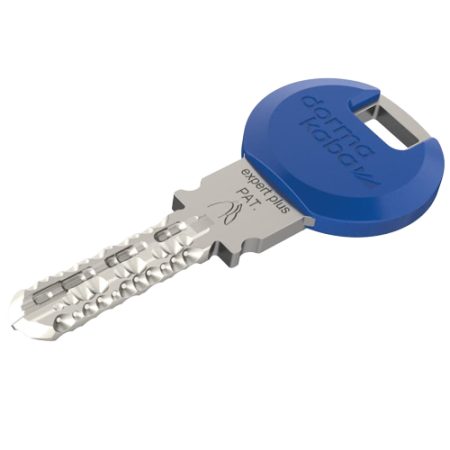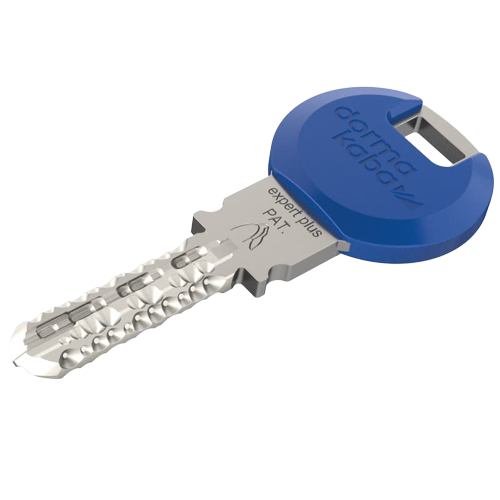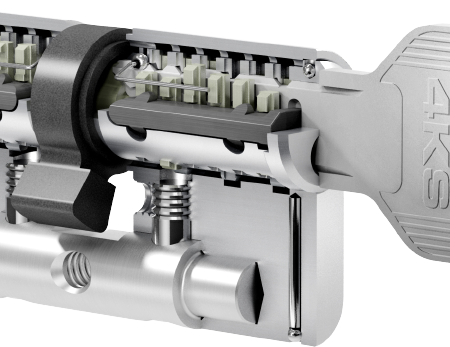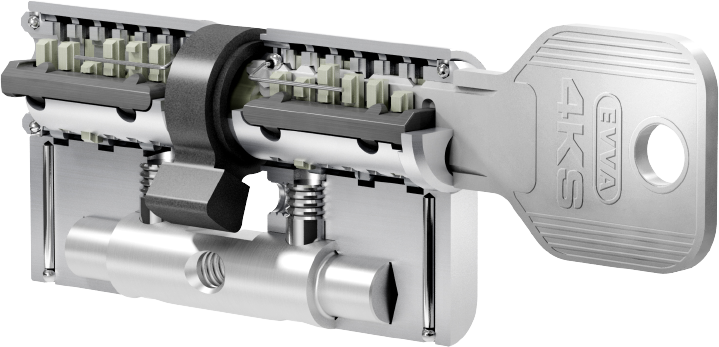Description
EVVA EPS Mechanical Master Key System
The EVVA EPS is a high-security mechanical master key system. It offers a cost-effective way to manage complex and restricted access across commercial and government sites.
High-Security Protection – EPS is designed to resist lockpicking, drilling and key bumping. It features patented key profiles that protect against key theft and unauthorised duplication. Hardened steel pins at the front of the cylinder add extra defence.
Built for Complex Access Needs
EPS supports complex master key hierarchies. With multiple sidebards and up to 133 million key combinations, it’s ideal for securing large facilities with thousands of locks. This design keeps the risk of phantom keys extremely low – even in multi-site applications. Each key includes side cuts that align with internal sidebars. Only the correct key allows key rotation and the lock to open.
Tailored Access Permissions
EPS gives you precise control over who can access what:
- Managers may have access to all areas within their department
- Contract cleaners may open only designated service rooms
- Security personnel may be granted site-wide access.
As an authorised EVVA dealer, Independent Locksmiths & Security designs each EPS system to your site’s needs, whether you need access to just three doors or three thousand. EPS’s patented keying algorithm ensures secure operation even at scale, where conventional master key systems may falter due to a high risk of phantom keys.
Built to Last
EPS cylinders are manufactured using durable brass, stainless steel, and nickel components, providing maximum longevity and operational reliability in high-use environments.
Patent Protection & Key Control
The EVVA EPS system is protected under patent until 2027, and keys can only be duplicated by authorised dealers under strict authority protocols, ensuring maximum control and security.









